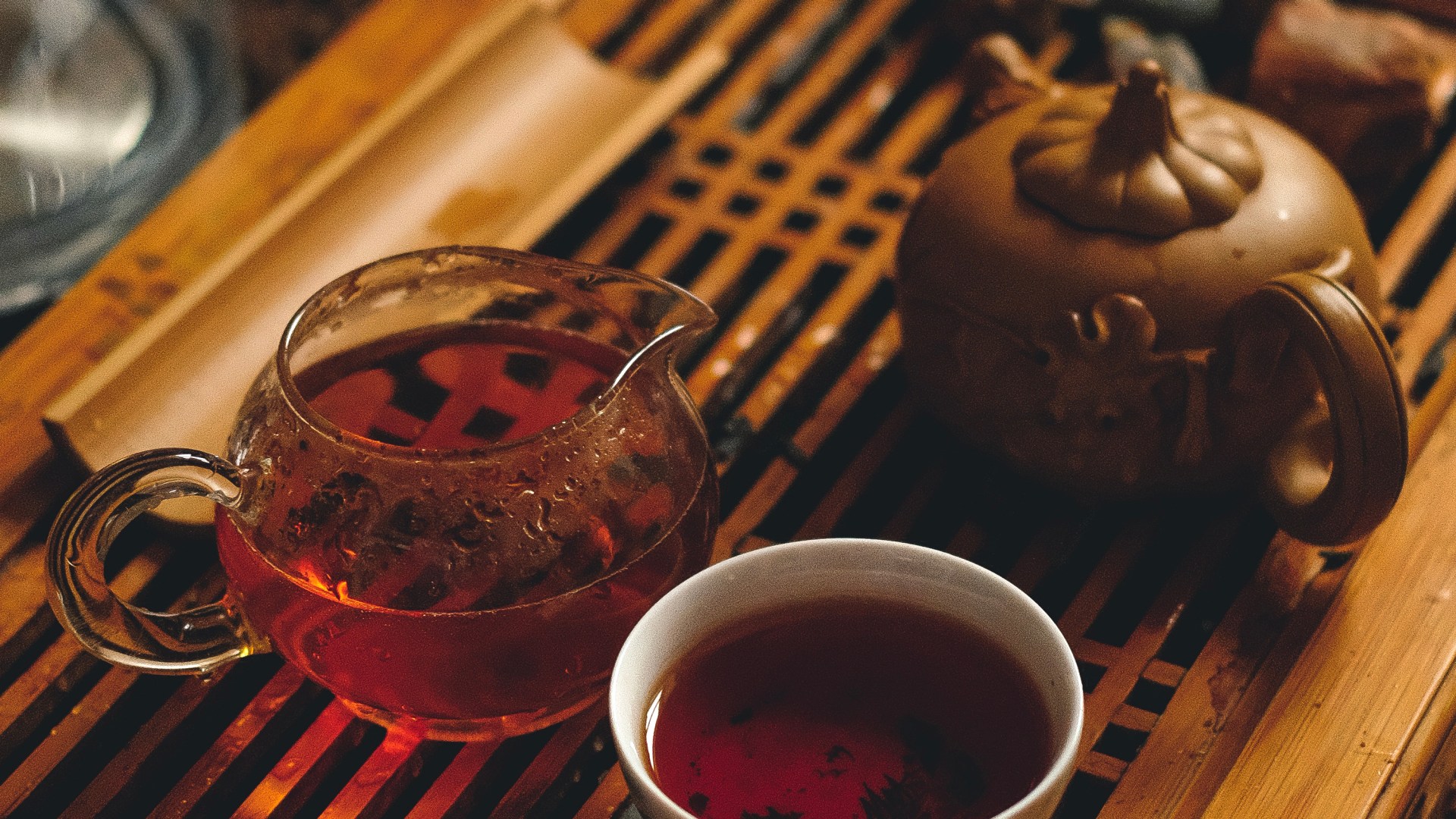It’s 5 a.m. and my house is quiet, but the world is loud. Here in the US, we’re preparing for Thanksgiving, and against the glistening backdrop of what we think the holiday ought to be—happy families gathered around abundant tables—is the sometime shabbiness of our ordinary lives: burned gravy, bickering siblings, and empty chairs. Fox News or MSNBC drones on and on in the background at grandma’s house, and anxiety simmers on the back burner of the stove.
We prepare our tables and imagine where everyone will sit. Can Uncle Bill, who loves to talk about Trump 2024, sit beside Sara from Seattle? Can they make it till the pumpkin pie? We check to see how much last-minute tickets to Honolulu cost and pause to ponder bears, mildly jealous of how hibernation helps them survive long, hard winters.
We want to gather, to welcome, to bless—but we are afraid. “Often, we Christians have no idea how to open our hearts and our homes to include people who need to be there,” Rosaria Butterfield says in her book The Gospel Comes with a House Key. “We love the miraculous stories of Jesus, his feeding of the five thousand, his divine healing, his contagious grace. And we miss the most obvious things about these stories: that we are meant to replicate them in ordinary, non-miraculous ways.”
Ten years ago, an Egyptian Muslim woman named Heba helped me (a white American Christian) rediscover how to practice the spiritual discipline of hospitality, especially when our differences make it difficult.
I met Heba at a park. She was with her two daughters, and she was looking for a friend. I was there with my two girls as well, but I was merely looking to pass the hours between naptime and bedtime with as little disturbance as possible.
She thought I looked kind, a perception that strikes me as the first miracle of our friendship, given the beleaguered state of my heart and mind in that season of my life. It took her three attempts at striking up a conversation before I finally reciprocated, and within a few minutes, she’d invited me to her home for tea. That I said yes to a stranger’s invitation is the second miracle of our friendship.
Heba and I live in Midland, Texas, in the heart of America’s oil and gas industry, which brings a lot of multinational companies to a relatively isolated region of our country. These companies move global employees in and out of our community. Five hours from cities like Dallas or San Antonio or Austin, the Permian Basin can be a hard and lonely assignment for expatriates, the foreign nationals temporarily working outside of their home countries.
It’s especially hard on the spouses—usually women—who often are stuck in a small apartment in a strange city with little to do and no friends. For example, when Heba and I met, she had to drive at least five hours to get to a good Arab grocery store with halal meat, and the local international food scene was dominated by taco trucks and Chinese takeout.
Like Heba, I’d moved to Midland from overseas—from Beijing, China, where my husband and I had lived for nearly four years. I remembered from my time abroad how lonely it could be to wake up on December 25 in a country where Christmas was just another day, and I knew the “trailing spouses” in Midland were more isolated than I’d ever been. So Heba and I started hosting dinners in our homes, inviting native-born American women interested in making friends from other places and expat women whom Heba had gathered into her fold.
Our dinners quickly expanded from two people to three to ten, and when we outgrew our homes, we formed an international women’s group called Basin Bridges and started meeting in a church fellowship hall. Open to all, our group has grown over the years to include over 500 women representing at least five different faith traditions, close to 20 countries, and even more languages.
Our monthly gatherings have always centered around a shared table and conversation. Most months, it’s simply coffee and grocery store snacks, but once a year, we host a global potluck Friendsgiving, where we each bring our families and a traditional food from our home culture to share, pulling up as many chairs to the table as necessary. Last year, our group was nearly 70.
Ask anyone who comes regularly to our gatherings, and she’ll tell you that being a part of a group with the sole purpose of fostering friendship between people of different cultural and religious backgrounds has profoundly shifted the lens through which she views the world. There are no faceless conflicts now. This group has scrambled my natural proclivity—egged on by so many headlines and pundits—to sort everyone and everything into tidy categories of “us” and “them.” Everything is simultaneously more complicated and much simpler.
When Hamas terrorists attacked Israeli civilians last month, our group discussed what we each knew of the regional history. We learned from one another how incomplete our perspectives were, shaped by childhood history classes in Cairo and Carrollton. Together, we grieved the violence inflicted on ordinary Israeli families by Hamas, and when the war in Gaza began, I held my breath alongside Heba as she waited more than three weeks for word from some of her friends trapped in the region.
When Russia bombed a Ukrainian nuclear power plant last year, our group listened to a Ukrainian woman, homesick for a place she could never again revisit. She told us what Zaporizhzhia had been like before the war, about the summertime walks along leafy tree-lined streets to cafés tucked into old European buildings.
Friends from Myanmar share news from aunts and uncles who’ve fled to the jungle to escape government-led bombings. Friends from Venezuela tell us how their families back home manage to stretch a salary to cover food for a month. Last month, an Iranian Christian told our group about her escape from Iran because of religious persecution, and a hijab-wearing Malaysian Muslim woman was among the first to express her furious grief over those who use religion—in this case, her own religion—to coerce and control and consolidate power.
These conversations aren’t always easy, but after sharing many tables together, our talks are rooted in curiosity rather than contempt. Each time we gather, we come away remembering afresh that what we have in common is so much greater than that which separates us. After all, you can’t see someone as entirely “other” when they’re teaching you to make their grandma’s dumplings.
And in a global context of algorithms and click bait and outrage porn that pushes each of us further into our respective echo chambers, relationships that cross cultural and religious lines provide a helpful path back to temperance. My friendship with Heba and Basin Bridges more broadly have become an organic deradicalization program, a life jacket in turbulent seas.
Gather, break, bless, go out: This is the sacramental life. As Christians, it is what we do when we take Communion. We gather together; we break bread, remembering Christ’s sacrifice; we take it, receiving the blessing of his promise to be our ever-present help in times of trouble; and we go out to love and serve the world.
It is the same pattern echoed in Jesus’ miracle of feeding the five thousand (Matt. 14:13–21). He gathered what the people had to offer, broke the bread, blessed the meal of five loaves and two fishes so that it was abundantly more than any could ask or imagine (Eph. 3:20), then sent out the people with lives transformed.
Though our international women’s group meetings are not centered around a shared faith tradition, they still follow this same sacramental pattern. We gather, break bread, ask questions and listen to each other (which is, of course, a way to bless one another), then go out into our ordinary, non-miraculous lives better equipped to live as ordinary, non-miraculous peacemakers.
The truth is, sometimes it’s easier to love a culturally distant stranger than it is to love those we’ve been around our whole lives. Occasionally, our families include dangerous people for whom the rules of engagement must necessarily differ. But most people are merely difficult, and our very familiarity, as the saying goes, makes it all the more tempting to slide into contempt.
This week as we gather at our Thanksgiving tables, may we accept the holy invitation to practice a more determined hospitality. May we ask questions rather than make assumptions and seek to listen more than we seek to be heard. May we see each person around our table as a holy image-bearer who longs, to borrow writer David Brooks’s words, “to have another person look into their faces with love and acceptance.” May we recall, as Butterfield says, that “we belong to each other, and even though we may have just realized it, we always have.”
Even when it’s hard to gather and break bread together, practicing hospitality is a habit the Bible elevates as a spiritual discipline (Romans 12:13). It is a two-way transformation, rewiring the hearts and minds of both giver and receiver. It is the makings of an ordinary miracle.
Carrie McKean is a West Texas–based writer whose work has appeared in The New York Times, The Atlantic, and Texas Monthly Magazine.











